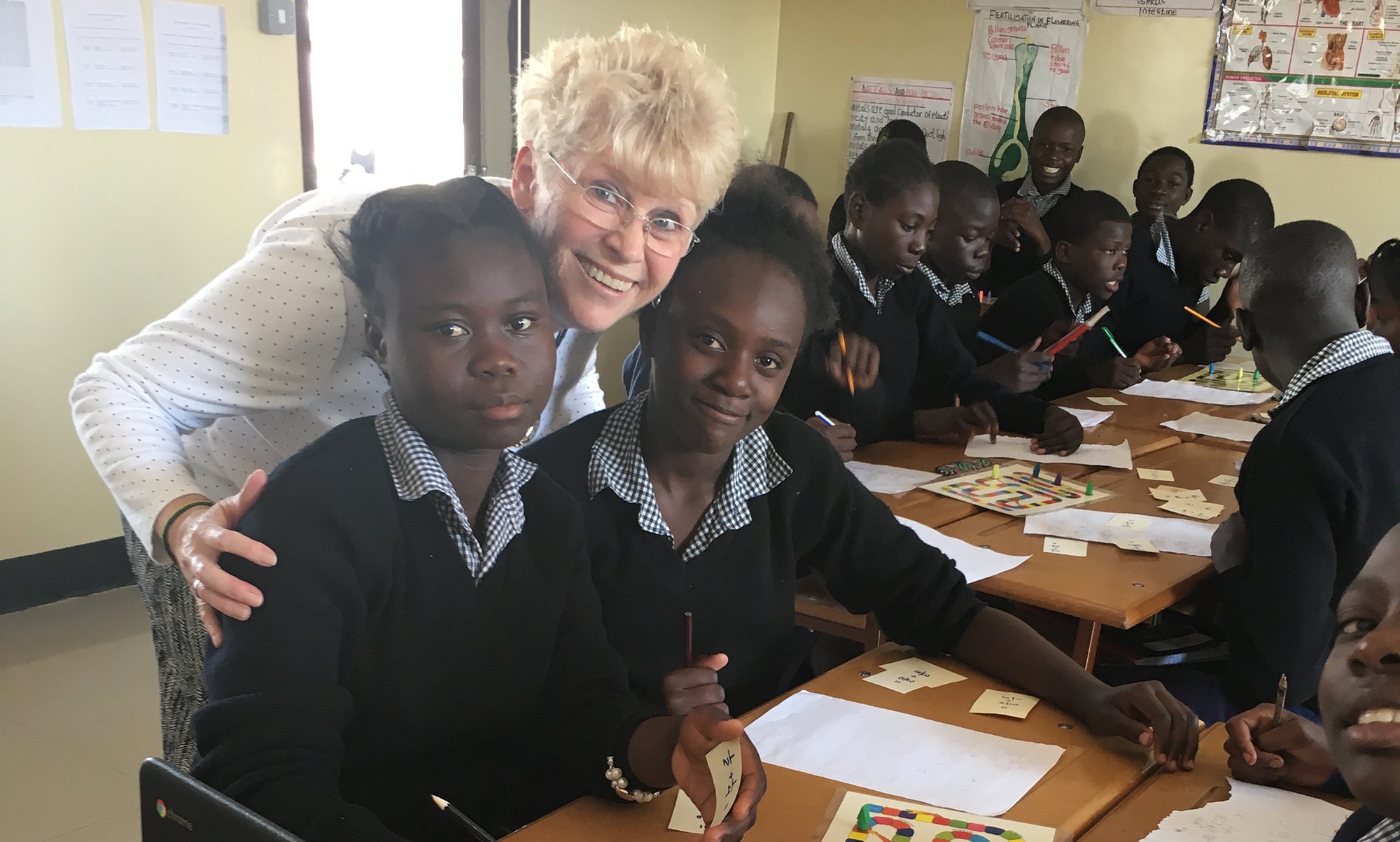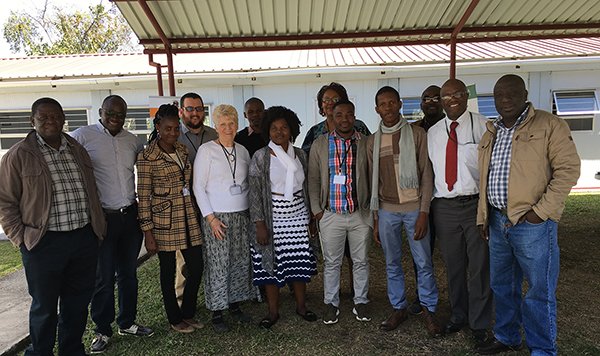
In 2006, Marilyn Meell took her first trip to Zambia with a local Michigan church group. Since then, she’s been back nine different times.
One trip is all it took for Meell, associate professor in Concordia’s school of education, to fall in love with the country, its people, and their culture. July marked her ninth trip to the country and second one of the year.
Q: How and when did you first get involved with mission work in Africa? What was the motivation behind getting involved?
In 2006 I went to Lusaka, Zambia to be a part of conducting two teacher conferences for community school teachers. These are teachers who do not have very much teacher training, and sometimes not even a two-year diploma. Community schools began throughout Africa starting in 2002 to serve the orphans and other vulnerable children who could not afford the costs of government schools where students are required to have uniforms, shoes, and socks as well as buy their own books and supplies, etc. I repeated that work in 2007, 2009, and 2011.
In addition, my husband and I have led three short-term mission trips to Zambia with both adults and high school students from our church to conduct children’s ministry outreach programs for children from national churches (all of those children were orphans or vulnerable children—all were extremely poor).
Q: What do your trips look like? Have they changed throughout the years?
My January 2019 trip was different because I conducted in-service training at the annual retreat for the faculty of Central Africa Baptist College (CABC) and Seminary in Kitwe, Zambia. I worked with the faculty for eight days. At that time we discussed and practiced forming Faculty Learning Communities in order for faculty to meet together and discuss relevant topics and grow in their expertise—together. These have become very successful!

This last trip involved conducting teacher workshops and in-the-classroom training for teachers at LifeSong Harmony School in Kitwe for one week. The school serves more than 600 orphans in grade reception (kindergarten) through grade 9 who cannot afford to attend government schools. I taught lessons on Using Manipulatives to Learn Fractions.
In addition, I conducted four days of workshops for the faculty of the school of education at CABC on creating significant learning environments through course design. Brenda Johnson, one of our adjunct instructors in special education learning disabilities also participated at both LifeSong and CABC. She conducted training in the developmental reading assessments at the school and in social-emotional second step training for teachers at the college.
Q: What is the main purpose of why you go?
I have always felt that God has called me to “teach teachers” and help them become the best possible teachers that they can be. God has placed a burden on my heart for the teachers of Zambia who serve in very difficult conditions and who are so dedicated to serving the vast number of orphans in Zambia. I go to be an encouragement and to give them new skills that can assist them in improving student achievement.
Q: What was the highlight of your most recent trip?
At CABC the instructors were challenged to examine other “educational environmental” aspects that impact teaching and learning. Typically the only instructional technique used in college-level courses is lecture. We examined the impact of the human dimension of learning, demonstrating a caring attitude, identifying and focusing on the foundational knowledge required in each course (every course has a national exam in order to earn credit), integrating content and skills with course material from other courses in the diploma program for teachers, and understanding the impact of how college students learn. We also looked at ways to improve the application of learning through building critical, creative, and practical thinking in our students.
Q: A lot of your work has to do with teaching the teacher. Can you talk about the importance of taking that approach when it comes to investing in another community and/or the next generation of teachers?
God has called all of us as Christians to “build each other up” in Hebrews 10: “And let us consider how to stir up one another to love and good works, not neglecting to meet together, as is the habit of some, but encouraging one another, and all the more as you see the Day drawing near” (v. 24-25).
God has so abundantly blessed me in my career, and I feel very grateful that I have been given nine opportunities to go to Zambia to give of myself and my knowledge to others.
Q: How does this kind of work relate to your faith? What role does faith play once you’re over there?
My faith has been stretched as I trust the Lord to provide funding for the trip (each one costs approximately $3,000) as well as good health and stamina for the two weeks while I’m there.
I have learned that doing something on this magnitude requires complete dependence on the Lord for His guidance in what and how to prepare and teach, as well as His leadership to plan for “what” we can do and to not feel guilty for not doing what we cannot. We cannot fix all the problems of the education system for orphans, but we can help teachers prepare to increase student achievement through a variety of instructional strategies, resources to assist with learning, and contentment in knowing that God will strengthen them and equip them for the “ministry” to which He has called each one of them.
Q: What would you say to someone who is considering traveling abroad to do similar work?
Don’t hesitate to stretch yourself and ask God to challenge you to go, give, and be ready to get some tremendous blessings!
Q: How can other teachers invest in the next generation right where they are? How can this be practiced in the everyday classroom?
Be encouraging—there is too much negativity in classrooms today. Be caring—children are dealing with so much trauma in their lives that they may find it difficult to focus on learning. Be committed to GIVING of yourself to the children God gives to you each year. Be prepared spiritually, mentally, and emotionally to see others the way that Jesus sees them. Be creative—try some new techniques. For me, teaching fractions was something that I never dreamed I would be doing. But it was requested and all I had to do was acquire the resources and the knowledge! Be available to whatever adventure God has prepared for you.
Q: How does this experience reflect in your work at Concordia?
I hope and pray that it does. I always want my graduate students to be successful so I must have an attitude of caring and concern for their benefit. I want them to “see and hear” the words of Jesus declared from my life in the classroom and via online. I want them to know that I truly care about each one of them becoming better at what they do and for the ministry that God is preparing them.
Are you interested in becoming a teacher yourself? Would you like the opportunity to learn from faculty like Marilyn Meell? Start your teacher journey by exploring the different degrees that we offer within our school of education here at Ann Arbor.
—
If this story has inspired you, why not explore how you can help further Concordia's mission through giving.